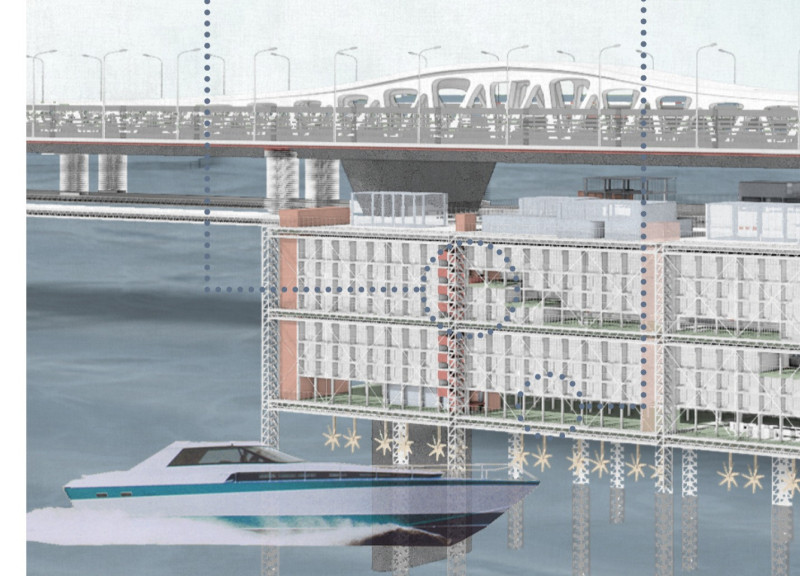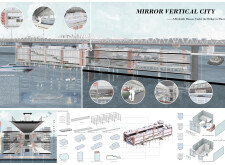5 key facts about this project
## Project Overview
The Mirror Vertical City project, located in Macau, proposes an innovative approach to address the critical demand for affordable housing by utilizing space beneath an existing bridge. This conceptual design aims to redefine the relationship between existing urban infrastructure and residential living by creating a vertical model that maximizes limited land resources and integrates with the surrounding architectural and environmental context.
## Materiality and Sustainability
The materials selected for the Mirror Vertical City reflect a commitment to durability and sustainability. Structural components predominantly include metal for its strength, while concrete serves as the primary material for panels and flooring, chosen for its robustness and fire-resistant properties. Glass is incorporated into facades and interior partitions to facilitate natural light and ensure visual connectivity with the exterior. The use of precast concrete panels streamlines the construction process, enhancing efficiency and supporting modular design. This choice of materials not only supports sustainability initiatives but also optimizes construction timelines and costs, essential for affordable housing solutions.
## Spatial Design and Urban Integration
The project features a modular design characterized by stacked residential units, which optimize the use of vertical space while minimizing ground footprint. This vertical organization not only addresses housing demands but also provides residents with expansive views of the surrounding landscape, enhancing their quality of life. The structure's cantilevering elements introduce a dynamic form that maximizes under-bridge space, exemplifying contemporary architectural practices that harmonize form and function. Additionally, the strategic location fosters urban connectivity, granting residents easy access to transportation, commercial districts, and recreational spaces, thereby facilitating a greater sense of community and enhancing local engagement.




















































